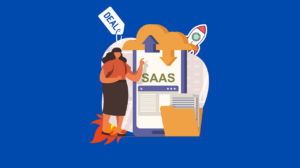If you run a business of any type or size, accessing data has likely already been a part of your operations. Data is simply information that is recorded, can be referenced, and analyzed. If you sell online, you have personal data about your customers, like their name, address, email, etc., and you likely have a purchasing history, as well. Even if you only run a brick and mortar store, you may collect a bit of information about customers, but you surely have data on your inventory, sales, accounting, etc.
Much of this data is helpful to run everyday operations and sales, but when the right data is collected and analysed, this information can be used to drive marketing, create new product or service innovations, and grow your profits.
Many companies collect data as part of their daily operations – it’s knowing which data to collect, having the resources to properly analyse it, and then using those analyses effectively that are key to using data to drive profits and growth. Using an Enterprise Resource Planning system can help with managing all parts of your company plus help you collect, access, and use data.
Enterprise Resource Planning systems can help management and employees enormously with accessing and using data from multiple sources internally and externally. Consultants can help you learn about the latest business management software like Sage Enterprise Management (formerly known as Sage X3), Sage 300cloud (formerly known as Sage 300) and Sage Intacct, plus implement the software system to suit your needs. These ERP programs are made to be customizable, and expert consulting teams will work within your time frames, are highly responsive, customer-oriented, and deliver personalized services to clients of any size or industry. Professionals like IWI Consulting Group can also provide IT support and additional learning resources and training which businesses can pursue independently.
Collecting and analysing online data continues to take center stage with many companies using information like browsing behaviour on their site and other sites, purchasing history, and social media activity. Consumer habits can be tracked and used to ascertain their likes and dislikes, and this could be utilized to display or suggest products and deals an individual is more likely to be interested in, for example.
Brands can choose to follow consumer trends in a certain direction and decide to abandon a line of products that seem to be falling out of fashion. Social media can be used to detect what people are saying about certain products or services and which things are likely to be talked about and why.
Collecting and storing data uses a lot of resources. Storing the data alone can get expensive. It’s important to plan what data needs to be collected and how it’s to be used before undergoing collection efforts.
There are government regulations and laws that pertain to the collection of personal data and consumer privacy laws that must be followed as the foundation of any data collection plan and design. If data analysis is not your forte, hiring third party IT consultants and legal consultants to help your business implement the right technical infrastructure and virtual programs like ERP systems should be a pivotal part of your plans. Once implemented, customized, and trained, your business can take things from there.
Reach out and grab the data that is available and use it efficiently and cost-effectively with the help of data professionals.





